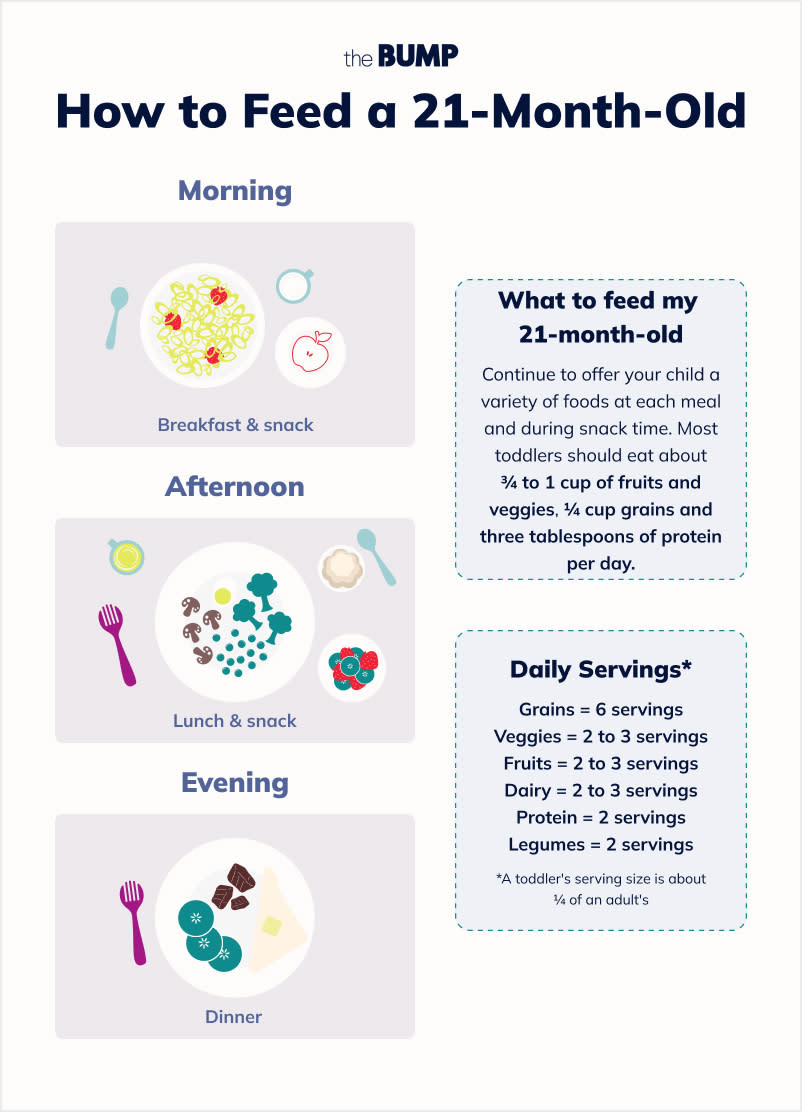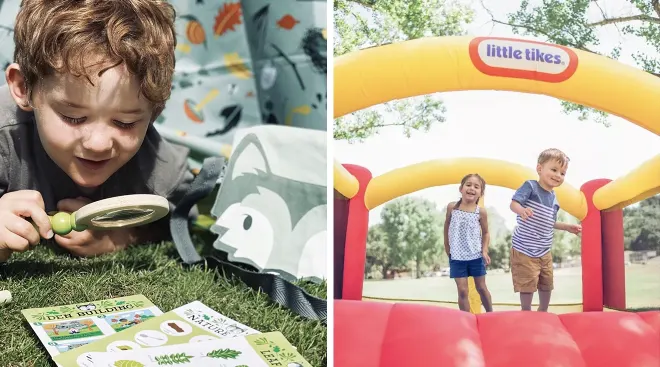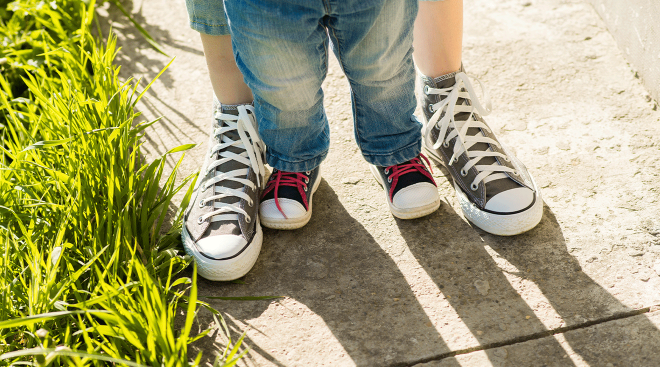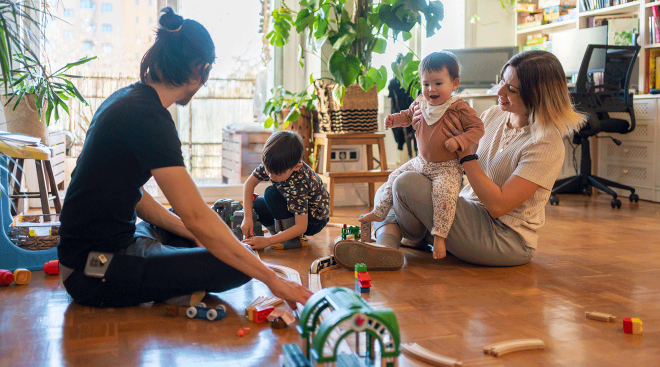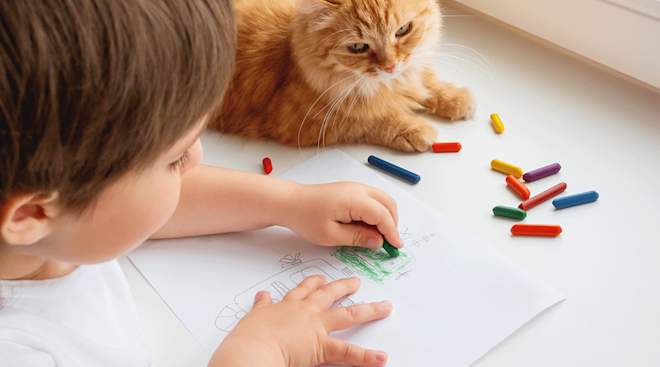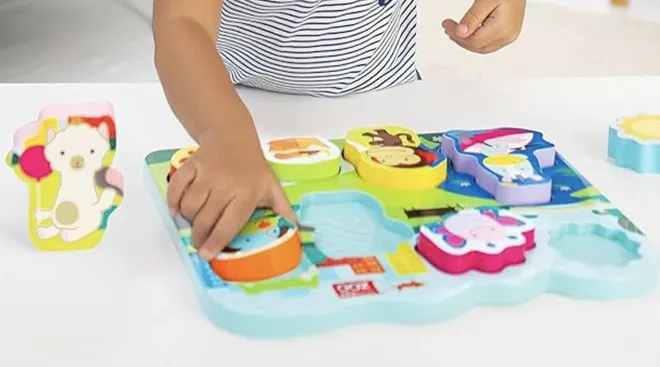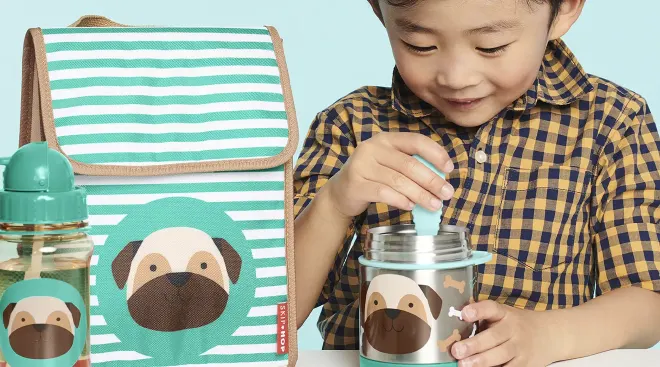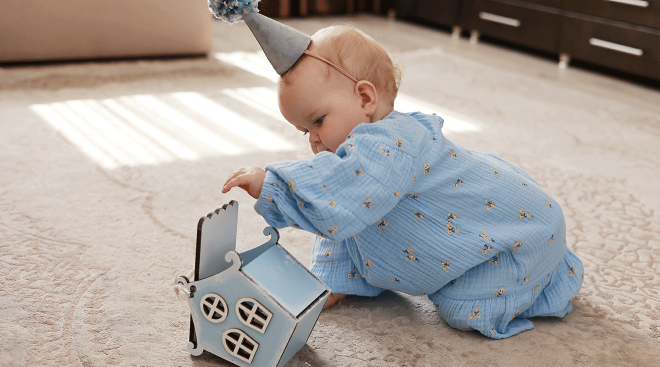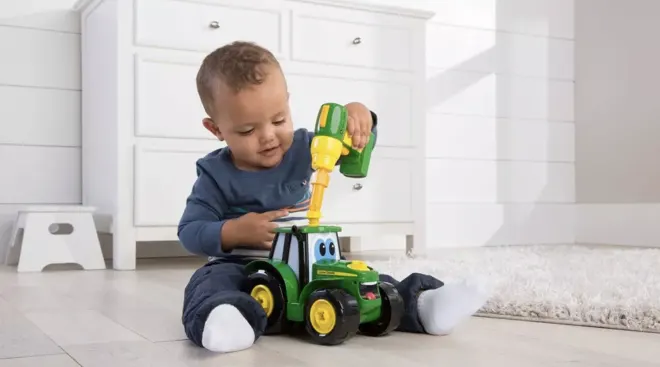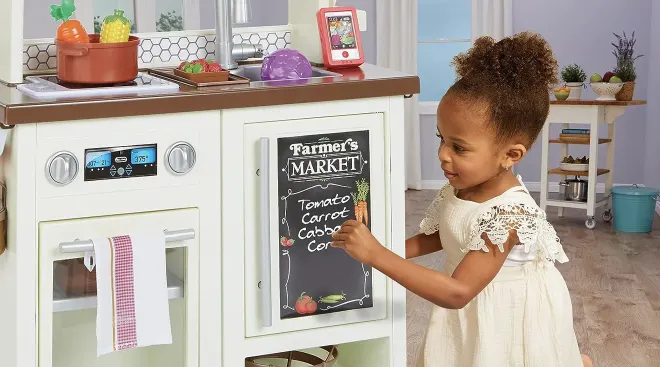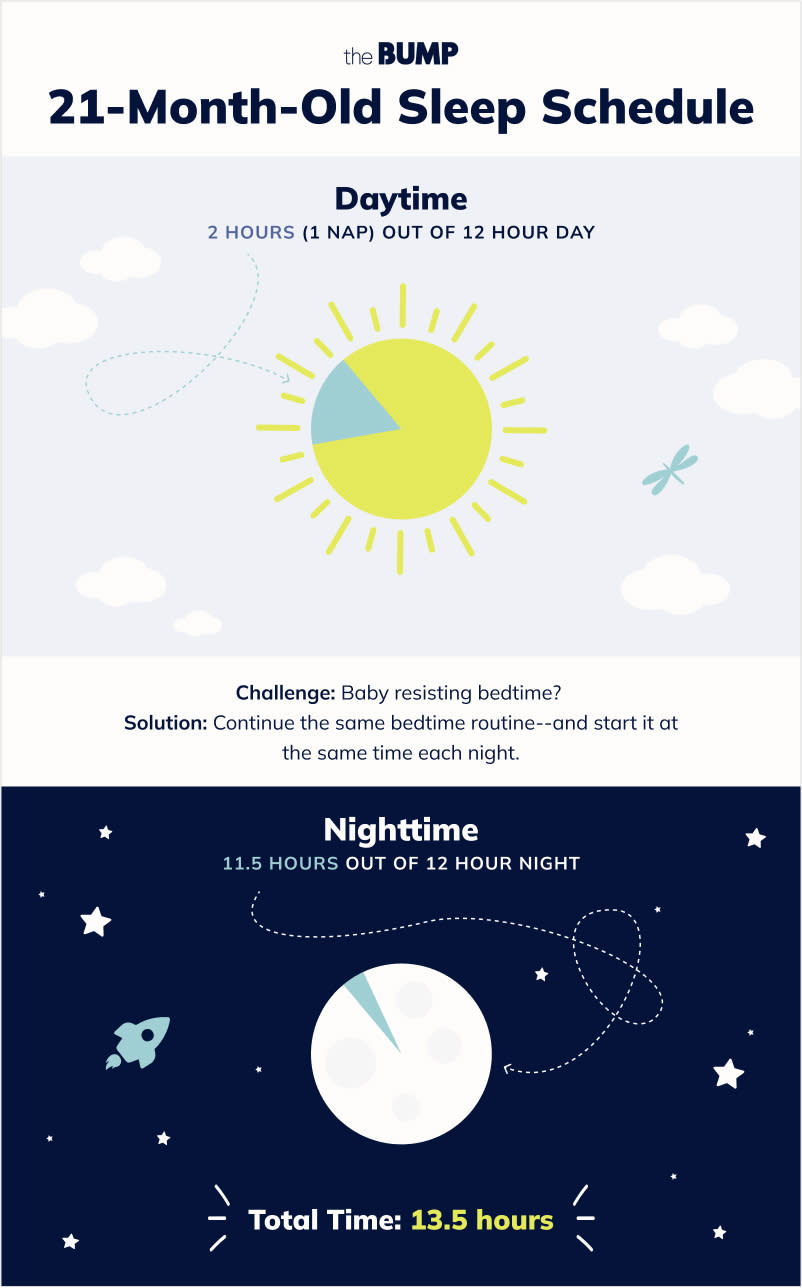As your 21-month-old baby nears the two-year mark, you may find yourself marveling at the little person your child has become (and wondering what happened to your little baby!). At this age, toddlers have endless energy, big emotions and a burgeoning sense of independence. Taking care of a 21-month-old can be a whirlwind experience, but we’re here to help make sense of it all. Our guide to 21-month-old development sheds light on what to expect from a toddler at this age, which 21-month-old milestones to track and how to deal with everything from picky eating to middle-of-the-night crib escapes.
As your 21-month-old continues to grow, they’re developing some new tricks to show off.
21-month-old weight and height
How much should my 21-month-old weigh? Average weight for a 21-month-old is 24.9 pounds for girls and 25.5 pounds for boys. Average height for a 21-month-old is 32.9 inches for girls and 33.5 inches for boys.
21-month-old milestones
Here are some 21-month-old milestones your toddler may be hitting or working toward:
- Motor skills. Most 21-month-olds can run, squat and throw a ball underhand. They might start to follow two-step directions. For example: “Fill up the truck with blocks, then push it to me!”
- Speech. Your toddler may know around 50 words and could be able to put two together to make a phrase.
- Teething. Your toddler's lower second molars might be erupting, causing some teething discomfort—some come in earlier.
- Potty training. A few 21-month-olds show signs of potty training readiness. It's okay to get an early start if you truly feel your child is prepared. But beware of putting pressure on your kid to potty train—it's still early.
21-month-old behavior
As your child gets older, here’s advice on how to deal with some potentially challenging behaviors:
- Tantrums. Even though your kid's language is developing by leaps and bounds, they still can't communicate everything they want to say, and that can lead to some meltdowns.
- Autism. At the upcoming 2-year-old checkup, your child's pediatrician will likely ask you a series of questions about your toddler’s behavior to look for signs of autism. But if you have any concerns before then, you shouldn't feel shy about bringing them up to the doctor right away. Eighteen months is the screening age for autism, but it can be detected earlier depending on the signs.
- Seeking approval. Soon your child will show signs they’re aware of your approval (or disapproval). This is an important early step in learning positive behaviors. When your child behaves positively, tell them how much you like it. The opposite goes when they aren’t behaving well: Tell them you don't like it.
Health is always a top concern for parents, and this age is no different. Some common health questions parents of 21-month-olds have include:
- My 21-month-old has diarrhea. What should I do?
- What's a normal heart rate for a 21-month-old? Answer: between 80 and 130 beats per minute.
- My 21-month-old baby is vomiting. What should I do?
- My 21-month-old has a cough. What should I do?
- My 21-month-old has a temperature. What should I do if a fever develops?
Eating is a big part of a 21-month-old's life, but you shouldn't make a big deal about it. In other words, don't fight your kid about food or lecture them if they don’t eat their green beans. Just offer your child healthy options and let them choose what they want. A little praise for making good choices doesn't hurt.
How much should my 21-month-old eat and drink?
One- to 2-year olds should be eating much like you do: Three or four meals per day, plus two snacks. Give your child a variety of foods in all food groups—vegetables, fruits, grains, protein and dairy—daily.
Most 21-month-olds should be drinking whole milk, since one-year-olds need the fat for brain development and vitamin D for their bones. At age 2, you should switch them to 1 percent or skim milk. Doctors recommend kids ages one to 3 get 700 mg of calcium per day. So if your kid doesn't get calcium from any other source, they'll need about three 8-ounce cups of milk per day. If they do consume other forms of calcium, you can adjust their milk intake accordingly.
If you're weaning a 21-month-old from breastfeeding, remember to go slow. Drop one daily nursing session for at least two to three days before dropping the next. If you go too fast, you could risk plugged milk ducts and infection. Plus, it's a transition that could have an emotional impact on your child, so they may need a little extra comfort and reassurance while weaning.
What to feed my 21-month-old
Continue to offer your child a variety of foods at each meal and during snack time. Most toddlers should eat about ¾ to 1 cup of fruits and veggies, 1.5 cups of grains and four tablespoons of protein per day.
Looking for some tasty and nutritious meal inspiration? Check out these food ideas for a 21-month-old:
21-month-old feeding schedule
21-month-old refuses to eat
Try not to worry too much if your child is turning down nutritious foods and eating what seems like half a bite for dinner. It's normal for 21-month-olds to be picky eaters. They're not growing as quickly as they did in their first year, and let's face it, saying “no” to eating is part of exercising your tot’s newfound independence. The best you can do is to keep offering nutritious food options, choosing and preparing food together and modeling healthy eating behaviors for your child.
Should a 21-month-old take vitamins?
If you're concerned your tot isn't getting enough nutrition in their diet, ask the pediatrician about supplementing with vitamins. Some toddlers take a multivitamin and/or an iron supplement. Fiber supplements are commonly given to prevent constipation, but they're rarely needed: Fruits and veggies can usually do the trick for keeping a 21-month-old’s digestive system on track.
Your toddler needs plenty of sleep to support their development—and to keep their mood in check. But there are some sleep questions and challenges parents of a 21-month-old might encounter.
How much sleep does my 21-month-old need?
Most 21-month-olds need around 11 to 12 hours of nighttime sleep, plus a nap of about 1.5 to 3 hours, for a total of about 13 to 14 hours of sleep per day.
21-month-old sleep schedule
Every kid is different, but your child's schedule may look something like this:
21-month-old sleep regression
Regression can happen when a formerly good sleeper suddenly begins waking more, throwing you for a loop. A bout of teething or illness could be the cause, or maybe a trip or holiday where your toddler’s sleep routine changed. To get back to the usual snoozing routine, it's important to know the root of the problem, so you can help your child get through it. Stick with the usual bedtime rituals and set limits that will help them get back on track.
21-month-old fighting sleep
It's normal for a 21-month-old to resist bedtime. Everything else seems much more fun than sleeping. But your tot does need to snooze (and you need the quiet time too). Here's another place where adhering to the same calming bedtime routine—and starting it at the same time each night—can help.
Also, make sure your child gets plenty of active play during the day, and that you power down devices and TV at least 60 minutes before bedtime. And make sure the afternoon nap doesn't run too late in the day.
21-month-old climbing out of crib
The first time you find your toddler climbing out of the crib can surprise any parent. Some savvy parents catch their toddlers pulling a jailbreak and effectively convince them never to try it again; others simply can't stop them. Once it becomes clear your child isn't staying put, it's more likely they'll get hurt falling while climbing than they would if they rolled off a low bed. Then it’s time to convert the crib, or bring in a toddler bed or big-kid bed with rails. Some parents even prefer setting the crib mattress on the floor, so the child can't fall far.
Playtime is even more entertaining as you start seeing your tot’s personal interests shine through in their toy and game choices. During playtime or mealtime, be warned that your wee one may find it “fun” to stick small objects—like raisins or beads—in their nose, ears, or other orifices, so watch closely. Fun activities, games and toys for a 21-month-old include:
- Making a cardboard house. Using a large cardboard box, cut out a “door,” and you’ve got an instant—and cheap—indoor playhouse. If you feel like getting fancy, decorate the “house” with windows and other details.
- Putting together a puzzle. This is a great age for matching games, like shape-sorting and simple puzzles.
- Naming things. Go for a walk with your toddler and ask them to find or name objects they see. You can also do this with body parts!
- Keep encouraging your child to learn to dress themself. At this point, they might be able to take off a piece of clothing. Soon, they'll be able to put one on and may be able to put on shoes too.
- Enroll in a parent-and-me swim class. Experts used to discourage official swimming lessons for toddlers under the age of 4, since few children under that age have the muscle strength to keep themselves afloat. But these days, experts encourage informal swimming programs to get toddlers comfortable around water—and to teach them its dangers.
- Don't pressure your child to share if they’re just not ready. But definitely praise them when they do. Some parents find using the term "taking turns" works better than overemphasizing "sharing."
- Is your 21-month-old baby showing signs of escaping the crib? If so, it might be time to transition to a toddler bed. Be sure to address this sooner than later to prevent any accidents.
- Give your toddler plenty of opportunities for physical play. Be sure to set aside some playtime where your kiddo can move their bodies and burn off energy: It’s recommended that toddlers get at least an hour of unstructured, free-play activity a day. This will also help them sleep better once bedtime rolls around.
- If your toddler is showing shy tendencies, don’t pressure them into situations that may make them uncomfortable. Be supportive and patient, and don’t force them to say “hi” or give hugs when they don’t want to. Of course, if you’re ever concerned about your child’s social development, speak to your pediatrician.
Every day is a new adventure as you watch your 21-month-old blossom. Every child develops at their own speed, but if you’re ever worried about your child missing their 21-month-old milestones, contact your doctor.
Please note: The Bump and the materials and information it contains are not intended to, and do not constitute, medical or other health advice or diagnosis and should not be used as such. You should always consult with a qualified physician or health professional about your specific circumstances.
Navigate forward to interact with the calendar and select a date. Press the question mark key to get the keyboard shortcuts for changing dates.


































